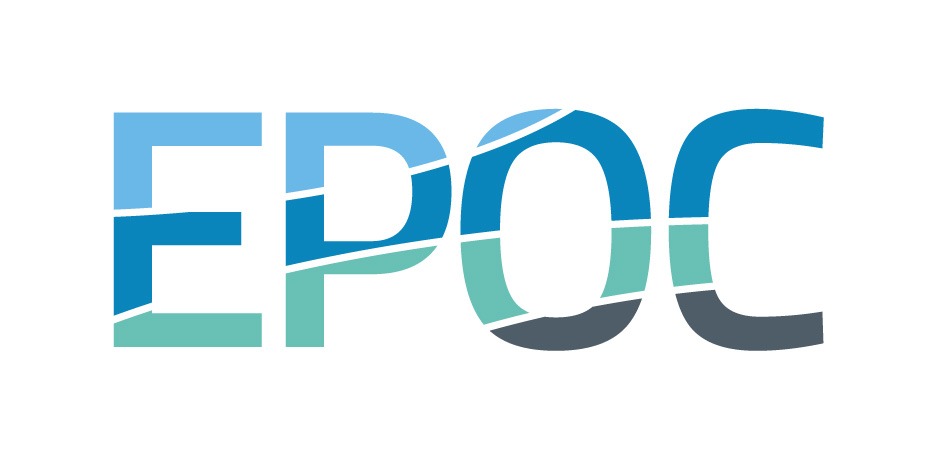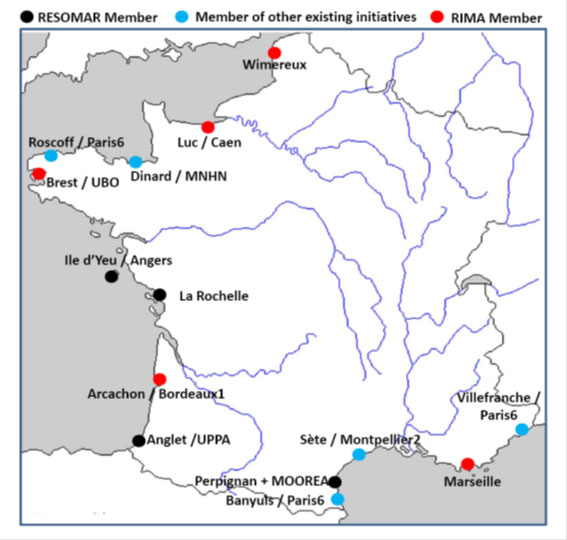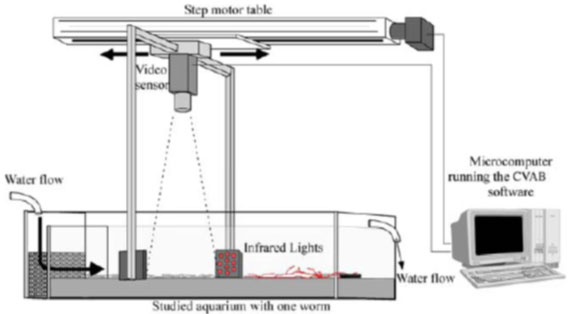
|
UMR CNRS 5805 EPOC
Environnements et Paléoenvironnements Océaniques et Continentaux |
Version Française |
| HomeNewsJobsAccessLinksSite Map | |
| > Capacities > Technical Capacities > Expérimentation | |
|
Consignes de Sécurité et Numéros d'Urgence
(à l'usage des personnels du laboratoire) |
Plateforme Technique « Expérimentation »
Le développement de la plateforme expérimentation de l'UMR EPOC est étroitement lié à la construction du Pôle Océanographique Aquitain sur le site d'Arcachon. L'objectif consiste à créer une infrastructure du meilleur niveau international dédiée à l'expérimentation dans les domaines de l'océanographie et de l'écotoxicologie, et de disposer ainsi sur un même site de capacités expérimentales et analytiques de haut niveau.  Localisation géographique des stations partenaires de RIMA  Exemple de dispositifs expérimentaux impliquant des tables motorisées et des capteurs optiques qui seront optimizés dans RIMA pour permettre une vraie réplication des expérimentations RIMA is aiming at creating a coordinated network of cutting-edge marine experimental infrastructures at the national level. RIMA first originates from the shared willingness of its individual partners to develop new cutting edge marine experimental infrastructures. To our knowledge, this is the first time that networking of marine experimental infrastructures will be planned before their actual construction. This point is essential because it insures the best possible complementarity between individual infrastructures and thus the best contribution to the structuration of the academic community. RIMA will tackle three major technical points: (1) the necessity of developing high tech experimental infrastructures to unravel specific processes using up to date sensors and/or protocols, (2) the requirement for large scale experimental infrastructures allowing for the study of such processes in a realistic way, and (3) the capacity of running sound comparative experiments in distinct geographic areas both at the national and the international levels. By doing so, RIMA will allow to tackle major environmental questions in a true innovative way. RIMA will allow for the short-term deployment of innovative research in various fields of marine sciences including (non limitative list): (1) the development of new sensors in relation with several “Poles de compétitivité”, (2) Global change with comparative studies of the interactions between the functioning of pelagic systems and changing environmental parameters, (3) interface processes with the development of cutting edge experimental infrastructure allowing for the interaction between hydrodynamical, biological and biogeochemical processes, (4) aquaculture with the experimental study of the factors enhancing the massive of production of microalgal and zooplanktonic foods, (5) ecotoxicology with the experimental assessment of the effects induced by cocktails of contaminants at low concentration, and (6) hydrodynamical processes with the study of their interactions with biological ones such as bioturbation. RIMA will strengthen the partnership between the academic community and private companies through: (1) the elaboration of new knowhow, (2) the building of infrastructures required to test industrial products (e.g., the REACH directive), and (3) the increase of the current knowledge regarding the functioning of marine ecosystems and required for their sustainable management. The technological component of RIMA will also produce new know-how which will lead to the production of new commercial licenses commonly shared by academic and private entities. Corresponding indicators will be developed and monitored by RIMA governing infrastructures. |
|
UMR CNRS 5805 EPOC - OASU - Université de Bordeaux Allée Geoffroy Saint-Hilaire - CS 50023 - 33615 PESSAC CEDEX - FRANCE | Last update : 18 December 2023 | Contact | Legal Disclaimer | © 2006-2024 EPOC | |